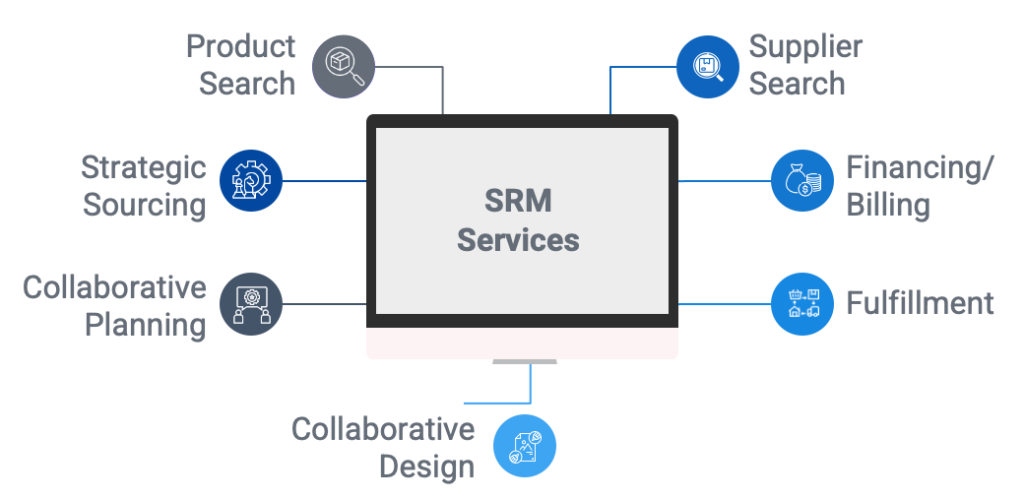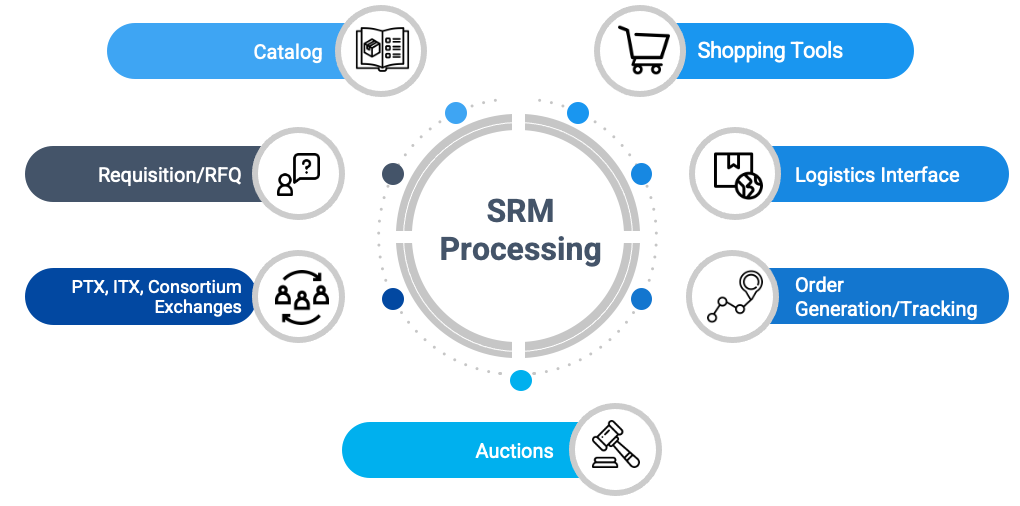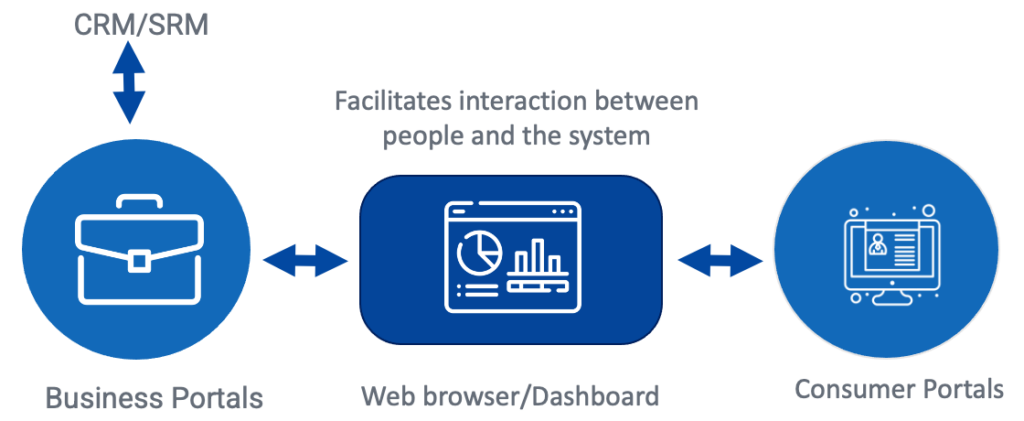The Internet has opened up new opportunities for buyers to simplify the procurement process. In the past, buyers had to spend a lot of time searching for new products and services. However, B2B marketplaces now offer a range of helpful features that were previously unavailable. These features include online product catalogs, special offers and pricing, payment processing, and post-sales support. By utilizing these B2B marketplace services, purchasing functions can significantly streamline the procurement process.
Supplier Search
B2B marketplaces provide a platform for buyers and sellers to communicate and collaborate in a two-way interactive manner. Through web-based applications, buyers can not only strengthen their relationships with their preferred suppliers but also widen their search for new suppliers on a global scale. Moreover, buyers can also explore innovative purchasing models, such as internet-based buying exchanges and auctions, for sourcing and spot buying.
Product Search
SRM offers a platform for creating, compiling, and accessing various online catalogs of products and services, which can greatly improve the search process. B2B marketplaces facilitate electronic searches for a variety of goods and services, such as MRO items, indirect materials, production goods, administrative supplies, and capital goods. To be effective, web-based applications should allow e-marketplaces to gather product and service information in one place, permit suppliers to showcase their own content, and enable buyers to create personalized catalogs.
Strategic Sourcing
e-Sourcing is a method of using online applications to search for and establish lasting, cooperative partnerships with important trading partners. Some examples of technology tools for e-sourcing are spend analysis applications, automated processes for request for quote (RFQ), request for proposal (RFP), e-auction and reverse auction, contract management, and supplier monitoring and improvement.
Value-added Services
SRM leverages the Internet to pursue a variety of other critical value-added business services, including
1. Financial services such as the use of payment cards, or P-cards, credit approval, corporate check payment, clearinghouse functions, and direct electronic billing
2. Comparison shopping functions
3. Collaborative design and configuration management functions for complex, make-to-order production
4. Advertising, promotions, and dynamic pricing models based on market demand
5. Transportation and logistics support to facilitate product fulfillment
6. Synchronized supply chain procurement planning
7. Establishment of marketplace performance benchmarks and key indicators
SRM Processing
Initially, Web-based applications for supplier relationship management (SRM) focused on procuring service and indirect inventories. This was because these goods and services were well-suited to business-to-business (B2B) e-markets. They are typically standardized commodities bought in large volumes, assessed primarily on their price, require minimal negotiation, and are frequently acquired through spot purchases.
On the other hand, purchasing production inventories is a more complex task. These items have highly detailed designs, low volumes, and variable prices, and are purchased from specialized vertical industry suppliers. Due to the specialized nature of the products and services, procurement often involves a complex negotiation process that includes an RFQ, competitive bidding, long-term contracts, and continued involvement in relationship-specific investments. e-SRM in this area is more about leveraging collaborative partnerships with trusted suppliers than using a free market bid/ask exchange. The components that make up this area are:
1. Product catalog. Internet-based catalogs provide for the exchange of goods and services via electronic markets where buyers have access to virtual storefronts to search for any product and service mix at the lowest cost.
2. Requisitioning. SRM applications seek to facilitate the requisitioning process by integrating product and service catalogs of exchange marketplaces, industry consortia, or third-party aggregators located across the Internet into a single “virtual” catalog available through on-line interfaces. SRM applications provide for online document interchange, supplier chat-rooms, open requisition status, and access to the latest budgeting and inventory information for transfer to the firm’s enterprise resources planning (ERP).
3. RFQ. The Internet significantly automates the request for quotation (RFQ) process. The RFQ can be created electronically, and then posted in a public, on-line bulletin board for open bidding, or transmitted to preferred suppliers by e-mail, fax, or private exchange.
4. Shopping tools. Shopping agents augment the work of buyers by performing searches of possible business-to-business (B2B) marketplace sites to identify and match targeted products, pricing, quality, delivery, or other desired procurement attributes as well as to execute transactions.
5. Auctions. Electronic auctions are used primarily to buy and sell products whose values are difficult to determine, that are commodity-type items, or that are custom-designed. Auctions enable companies to expand beyond the domain of niche markets to reach potential bidders across geographic barriers and traditional industry lines. Almost any product can be offered on an auction site.
6. Order generation and tracking. Purchase orders can be created using ERP functionality and are then transmitted to the supplier through a paper order or electronically via fax, EDI, or the Internet. The progress of the PO can then be tracked and used to provide critical status information needed by manufacturing or distribution planners.
7. Logistics. The Internet enables logistics to offer enhanced services such as order tracking, carrier selection, shipment management, and freight bill management, as well as advanced functions, such as network planning, reverse logistics, locating suppliers with e-fulfillment capabilities, dynamic strategies for cross-docking, in-transit merge hubs, postponed assembly, and commingling of loads to optimize shipments.
Portals
Portals can be used for many business needs not just SRM.
Both consumer portals and business portals may be accessed through a browser and they help people interact either with automated systems or other persons. Security and access is predetermined by the role of the position using the portal.
Portal – A multiservice web site that provides access to dat that may be secured by each user’s role. Users can aggregate data and perform basic analysis.
Auctions
Auctions are a process where the value of a good or service is determined through bids from interested buyers in an open market. When a bid is accepted, it becomes a legally binding contract. Auctions are ideal for commodities, but may not be suitable when reliability, quality, or delivery time are important concerns. Ultimately, auctions are distinguished primarily by the price offered.
There are several different types of auctions:
1. Classic or forward. One seller and multiple buyers who bid up the price until it is sold.
2. Reverse auctions. Internet auctions in which suppliers attempt to underbid their competitors. Company identities are known only by the buyer.
3. Dutch auctions. one seller and multiple buyers for multiple but finite quantities of the same item for sale. Price starts high and goes lower.
4. Demand management auctions. Clearinghouses to liquidate excess supply. Must be indifferent as to the other party.
5. Stock-market style auctions. Dynamic pricing based on multiple buy and sell bids and offers on commodities.




